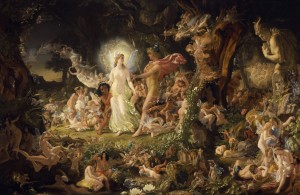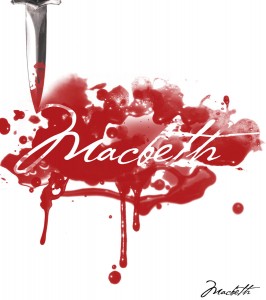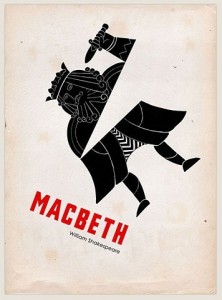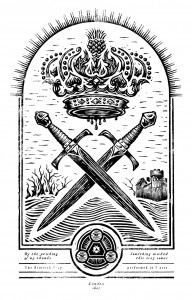 Shakespeare borrowed from novels, older plays, history, mythology, and other sources. His plays are typically divided into three groups: histories, comedies, and tragedies. Some scholars include his later plays, like Cymbeline and The Tempest, in a group called the romances. Shakespeare comedies exemplify various types: The Comedy of Errors, The Taming of the Shrew, and The Merry Wives of Windsor (farce); A Midsummer Night’s Dream, As You Like It, Much Ado About Nothing, and Twelfth Night (romantic comedies); All’s Well That Ends Well, Measure for Measure, and Troilus and Cressida (dark comedies).
Shakespeare borrowed from novels, older plays, history, mythology, and other sources. His plays are typically divided into three groups: histories, comedies, and tragedies. Some scholars include his later plays, like Cymbeline and The Tempest, in a group called the romances. Shakespeare comedies exemplify various types: The Comedy of Errors, The Taming of the Shrew, and The Merry Wives of Windsor (farce); A Midsummer Night’s Dream, As You Like It, Much Ado About Nothing, and Twelfth Night (romantic comedies); All’s Well That Ends Well, Measure for Measure, and Troilus and Cressida (dark comedies).
A Midsummer Night’s Dream, first performed about 1594, is where Shakespeare as an artist begins to emerge. The play combines a number of comedic elements, from the farcical actions of the “rude mechanicals” and their play-within-a-play to the rich language of the lovers, elevating the comedy into something different. The mystery of the forest setting and the various moods provide a base for future comedies, where more finely drawn and developed characters like Rosalind of As You Like It, Portia and Shylock of The Merchant of Venice, and the twins Sebastian and Olivia of Twelfth Night take important roles.
A Midsummer Night’s Dream is a good way to kick off our study of Shakespeare because within its boundaries, we see many Shakespearean play characteristics brought to life, like the parallel worlds of the city and the forest, mirrored characters like Theseus/Hippolyta and Oberon/Titania, and the contrasts between upper- and lower-class characters. These differences are found primarily in language level and style; the rulers and lovers speak poetically and beautifully, but the rustics from the lower classes have speech that is rougher and less rhythmic. Humor is found in wit (upper), farce (upper and lower), and downright bawdy language (lower). These shadings highlight the appeal that Shakespeare’s works had for all levels of the theater-mad Elizabethan society.
As you read, be on the lookout for a few of Shakespeare’s most famous lines, such as “The course of true love never did run smooth” and “Lord, what fools these mortals be!”
As with most Shakespeare plays, filmed versions abound. Of special note are the 1968 Peter Hall-directed version (young and gorgeous Diana Rigg and Helen Mirren play Helena and Hermia, with the inimitable Judi Dench as Titania) and the 1999 Michael Hoffman production starring Kevin Kline, Michelle Pfieffer, Rupert Everett, and Stanley Tucci in a memorable performance as Puck. The 2002 film A Midsummer Night’s Rave transports elements from the plot and several characters into L.A.’s rave scene—obviously not a true version of the play, but true to the spirit of the play, Shakespeare’s most fanciful comedy.
The full text of A Midsummer Night’s Dream may be found here.
A PDF copy of the text may be found here.
Illustration: The Quarrel of Oberon and Titania by Joseph Noel Paton
Brockett, Oscar G. The Theatre: An Introduction, Historical Edition. New York: Holt, 1979.
Mordden, Ethan. The Fireside Companion to the Theatre. New York: Fireside, 1988.







Shakespeare: Let It All Out
Some of my favorite comments you wrote about Shakespeare:
“I once got knocked out by being slammed on my head. Compared to Shakespeare, getting knocked out is fun. At least it is quicker.”
“I think Shakespeare is pretty freaking cool, even though sometimes it can be hella hard to translate.”
“His works are a vile thing, equivalent to castration and fingernail-bamboo torture.”
“I bite my thumb at Shakespeare.”
“In every play he kills almost everyone. IN EVERY PLAY. I can’t. I can’t even.”
“Let’s begin with the spelling of his name. It irritates me.”
“Shakespeare is my dog.”
“Shakespeare…to hate him or not to hate him…”
“I’ve always disliked any book that is older than me.”
“I don’t hate Shakespeare. I just don’t understand what he is saying.”
“I absolutely adore the Bard of Avon!”
“He’s a pretty cool guy I guess. His hair is ugly tho. He got MAD CLOUT.”
“OMG I love Shakespeare because of his plots and how it relates to us but that language? Oh no no honey!”
“I like that Shakespeare is Sex, Love, Death. But he has to be extra with his writing.”
“I think reading Shakespeare is like being suffocated with a pillow. I dislike the topics, the vocabulary, and the confusing names—”Mustardseed”? What is that??
“People say Shakespeare is a classic, a legend of the arts, a genius, can never be compared to, he is credited with some of the greatest works of all time, like Biggie.”
“I’ve been told many times that I was going to study Shakespeare. Never have I actually done that. Why? Because whenever it comes to that time, I stop paying attention.”
“Just stop with all of the ‘thou’ and ‘O’ stuff. But I guess it’s just a style, so you keep doing you, man. Shakespeare –> 7/10”
“I feel that people like him because of his name, like identical off-brand shoes to Nike.”
“I’m not a fan of ye olde English because it makes my brain melt out of my ears, but I haven’t read enough Willy to pass an unbiased judgment of him and his work. XOth XOth, Ye Olde Gossip Girl.”
“I’m not in love with him, but I don’t cringe at his name either.”
“When I hear the word ‘Shakespeare,’ I feel like imitating Romeo and killing myself. I also have the burning desire to have Macbeth’s fate (decapitation). I also feel like having the same ending as Julius Caesar: being stabbed thirteen times in the back.”
“Shakespeare and I have a hate-love relationship. I love his work, but the way he writes irks me with a raging passion.”
“So usually when I receive a Shakespeare play to read, I never read it because I feel stupid just trying.”
“Freaked out. Can’t understand. Grade will drop. I do like his stories when I understand them tho.”
“He’s super awesome, he lives up to the hype that surrounds his name. His works are the base of what many other works are written on.”
“Why does everything have to include something sad or love? Why can’t we read about trees or something when it comes to you? Why do I have to think twice as hard to figure out what you’re trying to say? GIVE ME A BREAK, SHAKESPEARE.”
“Meh. He’s chill, not for or against, but he’s for sure overhyped. Meh.”
“You want to know what I think about Shakespeare? You REALLY want to know? ¯\_(ツ)_/¯ ”
“Raw. Sexual. Ladies’ man. Hat with feather. Poet. Playwright.”
Comments Off on Shakespeare: Let It All Out
Filed under AP Literature
Tagged as AP, authors, commentary, Shakespeare